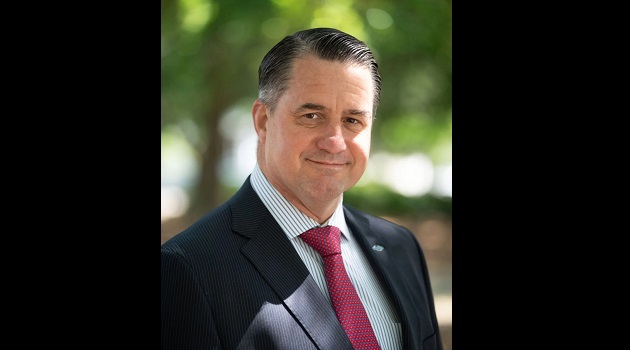A career Army officer reflects on the 22nd anniversary of that fateful day that forever changed the world
By Bill Connor
As we approach the 22nd anniversary of the attacks on September 11, 2001, my thoughts return to that fateful day and what came before and after it. With the distance of time to better appreciate what surrounded those attacks, I have come to a better perspective. As happened with Pearl Harbor, almost everything changed for America, even if it has taken time to recognize the pivotal nature of the 9/11 attacks. Every American’s prism is different, but also similar in relation to those events. I would like to share my own experience and with it show the profound nature of the events.
On September 11, 2001, I was a U.S. Army Infantry officer stationed at Ft. Benning, GA, and I had been on active duty since the summer in 1990 when I had graduated from The Citadel. My wife Susan was an Army M.D., and we had three young children.
I had watched the constant growth of radical Islamic terrorism throughout my career to that point, starting with the first World Trade Center attempted attack in 1993, but continuing with more brazen attacks against our embassies in Africa and even U.S. Navy ships in the Persian Gulf.
Within the military, our primary focus was on either peacekeeping operations, like that in the Balkans and places like Somalia. My three deployments up to that point had been to the Middle East, with two to the Persian Gulf area and a seven-month peacekeeping mission between Egypt and Israel in the Sinai. America was the clear world “hegemon,” and with the exception of nuclear parity with Russia, no military power was up to the point of being considered a peer military competitor. We had seen radical Islamic terrorism growing throughout the world, but America had not been hit beyond the failed attack on the World Trade Center in 1993.
September 11, therefore, was a complete shock to the system. We went from virtually no attacks on our homeland to around 3,000 Americans being killed in the four airline attacks of that day against our most iconic structures of economic and military power.
I remember at Fort Benning standing there in uniform watching the TV as the second airline hit the World Trade Center: All of us aghast and virtually frozen in disbelief. We initially assumed that the first airline hitting the tower might have been an accident, but the second strike meant we were at war. I immediately knew what those of my parents’ generation felt when Pearl Harbor was attacked. The frustrating part was that unlike Pearl Harbor, we didn’t have a clearly defined enemy, and that became the source of so many problems in the years to come. During World War II, we knew exactly who hit us, and we dedicated ourselves to defeating the Axis Powers at all costs and finishing that mission in under four years. That was not to be the case after 9/11.
After 9/11, we determined the terrorist group “al Qaeda” (“the base” in Arabic) was the direct enemy who had planned the attacks. With the emotion of something worse than Pearl Harbor (an attack against a military target in a territory outside the continental United States), however, we didn’t limit ourselves to going after al Qaeda or their Taliban hosts in Afghanistan. We decided to go after the form of attack with a “War on Terrorism,” and included countries with virtually no connection to al Qaeda as being part of an “Axis of Evil” or something similar. We also decided that as part of the decision of going to war, we would dismantle regimes which might possess weapons of mass destruction (WMD). We went even further hoping that we would spread democracy to also make ourselves safer.
The invasion of Iraq, unlike Afghanistan with al Qaeda and Taliban hosts, was justified upon the more indirect threats we came up with after 9/11. Iraq was thought to possess WMD, and when that proved to be questionable, the justification shifted to the spreading of democracy in order to create security for the United States.
In Afghanistan, we stayed beyond expelling al Qaeda and the Taliban and decided we had to rebuild Afghanistan into a democracy, again, for our security.
I was part of that Afghanistan mission, and as an Infantry major and then a lt. colonel, I advised the Afghans in their operations against insurgents attempting to overthrow the “new” Afghan government.
I will never regret my service, and I believe we did make a positive difference despite the failed strategic decisions made in the summer of 2021 during that disastrous withdrawal. Prior to our leaving, the Afghan people experienced freedom and democracy. The problem was and is that this positive good was outweighed by negatives in both Iraq and Afghanistan. In other wars, with the potential exception of Vietnam, we fought against a nation state like Japan to defeat them in our direct self-interest. During the War on Terror we justified going to war by the indirect alleged interest of creating a similar democracy free of threats like WMD. While we removed the al Qaeda threat that hit us on 9/11, we spent two decades at war for indirect justifications that proved a lousy return on investment of blood and treasure.
Despite the mistakes made, nobody can downplay the patriotism and heroism of so many Americans after 9/11 who answered the call. In my case, I was already a professional soldier, but I saw so many who put their civilian dreams on hold to serve. If we can learn from the mistakes, we will grow as a nation and not repeat those mistakes. Perhaps in that way it will have been worth it, and the honoring of our servicemembers is something that must continue as long as America exists.
– Col. (Ret.) Bill Connor, U.S. Army, is a S.C.-based attorney and a decorated combat infantry officer, a former senior U.S. military advisor in Afghanistan, and the former senior representative for ARMY NORTH in South Carolina. In 2010, Connor was the GOP runoff candidate for Lieutenant Governor of South Carolina.



